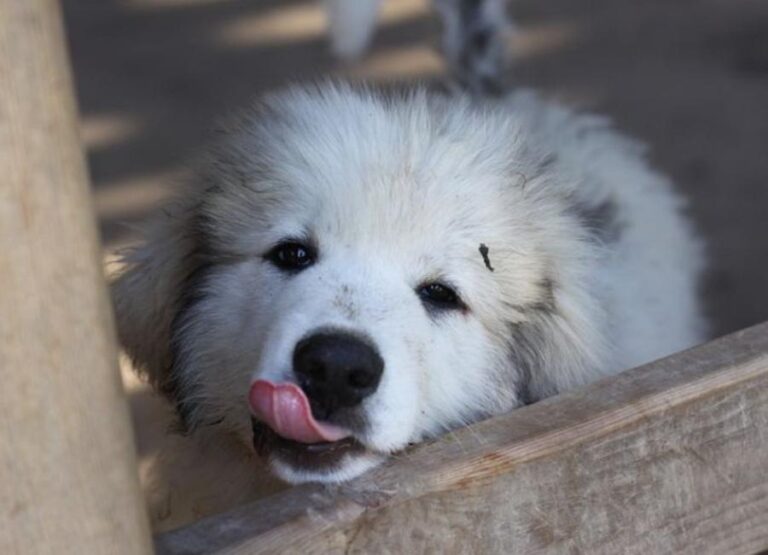Why Do Dogs Bark At Cats (10 Top Reasons)

Why Do Dogs Bark At Cats? Join me, and let’s find out together…
Dogs and cats are often seen as best friends, but there are some dogs out there who just don’t like cats.
They bark at them and try to scare them away. Well, I’m here to tell you why they do this.
Why Do Dogs Bark At Cats
Dogs bark at cats for various reasons. One reason is that dogs are natural predators and many have been bred to hunt small animals, so they may be excited by seeing cats and want to chase them.
Another reason is that dogs may be jealous of cats or have learned that barking at them gets attention.
If you are introducing a dog to a cat, it is important to watch for signs of aggression, such as barking or whining, and keep them separated if necessary.
To stop your dog from barking at cats, you can try training techniques such as positive reinforcement and desensitization.
Let’s break it down further…
Reasons Why Dogs May Bark at Cats
Here are some common reasons why dogs may bark at cats:
1. Lack of Socialization
Unsocialized dogs may growl or hiss at cats out of mistrust or fear.
When dogs and cats do not get along, it can result in barking and other hostile behaviors.
This is especially true if the dogs have not had favorable encounters with cats.
For pups to develop excellent relationships with cats and other animals, socialization is crucial.
2. Territorial Instincts
Due to their inherent territorial nature, dogs may perceive cats as an invasion of their home zone.
A dog may bark to warn a cat away from its territory and to show dominance.
Other territorial behaviors, including snarling, baring fangs, or standing erect, are sometimes displayed in addition to the barking.
In their owner’s domain, such as in their yard or on their land, dogs may also bark at cats.
3. Prey Drive
Dogs’ prey drive is an intrinsic tendency that drives them to pursue and snare tiny creatures.
Due to their tiny size and rapid movement, cats can induce this reaction in dogs.
Dogs who spot a cat may become aroused and start barking because they want to chase the animal.
Hunting breeds like terriers and hounds exhibit this tendency more frequently.
4. Playful Behavior
Some dogs could growl at cats in an attempt to play with them.
Social and amiable dogs may view cats as possible playmates and may bark to attract their attention.
Cats might not enjoy the barking, though, and they might flee, which might encourage the dog to continue after them.
When playing turns aggressive, owners should keep an eye on their dogs and step in if necessary.
5. Fear or Anxiety
Since they are nervous or terrified of cats, some dogs may bark at them.
If a dog has had a bad cat encounter or hasn’t been socialized with cats, they could see cats as a threat and bark at them to scare them away.
Fear-related behaviors like cowering, hiding, or trembling are frequently observed with this behavior.
By progressively exposing their dogs to cats in a safe and encouraging atmosphere, owners may help their pets get over this phobia.
6. They’ve never seen the cat before
A dog may bark at a cat because they’ve never seen such a cat before in its territory.
Dogs might bark at the new cat in their neighborhood or on the street, or even just as they walk past your house.
If your dog is accustomed to living near other dogs and people, then it’s possible that he has not yet encountered cats in his area before—or perhaps there are many different kinds of pets around him (cats included).
7. Curiosity
Dogs are curious creatures, and they may bark at cats because they want to know more about them.
It’s not just that dogs want to play with cats—dogs might also bark at them because they think that cats are going to hurt them.
Some people who have owned both pets have noticed this behavior in their dogs.
But it doesn’t happen often enough for most pet owners who live with multiple animals at once (or even for those who only own one).
8. The dog doesn’t want cats in their spot
Dogs are territorial and they don’t want cats in their spot.
Dogs are jealous of cats because they think that cats can take over their territory.
If you have a dog, then you know how much your pet hates the sound of another dog or cat barking (or even just their own bark).
Dogs bark at other animals trying to claim that specific territory as theirs because it seems like an easier path than trying to fight off another animal that wants what they have!
Read more: Why Do Dogs Bark At Other Dogs Walking By (7 Helpful Tips).
9. Boredom or Frustration
Dogs may bark at cats to let off their pent-up energy if they are bored or frustrated.
In order to relieve their tension, dogs that are not receiving enough mental or physical activity may grow agitated and start to bark at cats.
By giving their dogs ample exercise, fun, and mental stimulation, owners can stop this habit.
Read more: 12 Tips On How To Stop My Dog From Barking At Other Dogs.
10. Guarding Resources
Some dogs will growl at cats if they approach their food or toys too closely.
When cats threaten their resources, dogs who exhibit resource-guarding behavior may bark to defend them.
It is possible to change this habit through socialization and training.
How to stop dog barking at cats
If your dog barks at cats, there are a few things you can do to help stop the barking.
First, be sure to establish rules with your dog about how they should behave around cats.
Next, make sure you are consistent in enforcing these rules.
Finally, find a way to distract your dog from barking at the cats by doing something fun or enjoyable.
To break it down further…
Here are some common ways to stop a dog from barking at a cat:
- Make sure your cat is properly supervised when outside.
- Train your dog not to bark when they see a cat.
- Lure your dog to eat close to your cat.
- Teach your dog to “speak” when he’s around the cat.
- Reinforce good behavior around cats by rewarding your dog with treats or petting.
- Play a game for both of them.
- Always reward the dog for good behavior around the cat.
- Start proper socialization of your dog.
- Teach your dog to follow rules limitations and boundaries.
- Keep your cat safe and out of reach if your dog is not comfortable around him.
- Walk both pets together.
- Desensitize your dog by staying around your cat.
- Use a noise-maker to distract your dog from the cat.
- Use a cat alarm to scare your dog away from the cat.
- Try counter-conditioning of your dog.
Frequently Asked Questions
Why do dogs bark at cats?
Dogs bark at cats for various reasons, such as to warn them to stay away, to establish dominance, or out of fear or excitement. Sometimes, dogs also bark at cats simply out of habit.
How can I get my dog to stop barking at cats?
One effective way to get your dog to stop barking at cats is to train them using positive reinforcement.
Reward your dog when they remain quiet and calm around cats, and redirect their attention to a toy or treat when they start barking.
Can dogs and cats ever get along?
Yes, dogs and cats can become great friends and live harmoniously together in the same household.
It often takes time and patience to introduce them properly and help them get used to each other’s presence.
Is it harmful for dogs to bark at cats?
Barking at cats is not harmful to dogs as long as it does not escalate into aggressive behavior or cause harm to the cat.
However, excessive barking can be a nuisance and may disturb the peace in the neighborhood.
What should I do if my dog is aggressive towards cats?
If your dog shows signs of aggression towards cats, it is best to separate them and seek professional help from a certified dog trainer or a veterinary behaviorist.
Attempting to discipline or punish your dog may worsen the aggression.
Can cats also bark like dogs?
No, cats cannot bark like dogs. While they do vocalize, it is typically through meowing, purring, hissing, or growling.
Conclusion
In conclusion, dogs bark at cats for a variety of reasons, including territorial behavior, fear, and prey drive.
Understanding the root cause of your dog’s barking can help you address the behavior and create a more harmonious household.
Whether you seek the help of a professional dog trainer or take a DIY approach, remember that patience, consistency, and positive reinforcement are key to modifying your dog’s behavior.
With a little effort and a lot of love, you can help your furry friends coexist peacefully and happily.

![How To Socialize a Beagle [9 Useful Hints] How To Socialize a Beagle](https://petcreeks.com/wp-content/uploads/2023/05/How-To-Socialize-a-Beagle-768x555.jpg)



![Dog Keeps Running Away [Helpful Tips] Dog Keeps Running Away](https://petcreeks.com/wp-content/uploads/2023/02/Dog-Keeps-Running-Away-768x555.jpg)
![Do Boston Terriers Bark A Lot [Explained] Do Boston Terriers Bark A Lot](https://petcreeks.com/wp-content/uploads/2022/11/Do-Boston-Terriers-Bark-A-Lot-768x555.jpg)